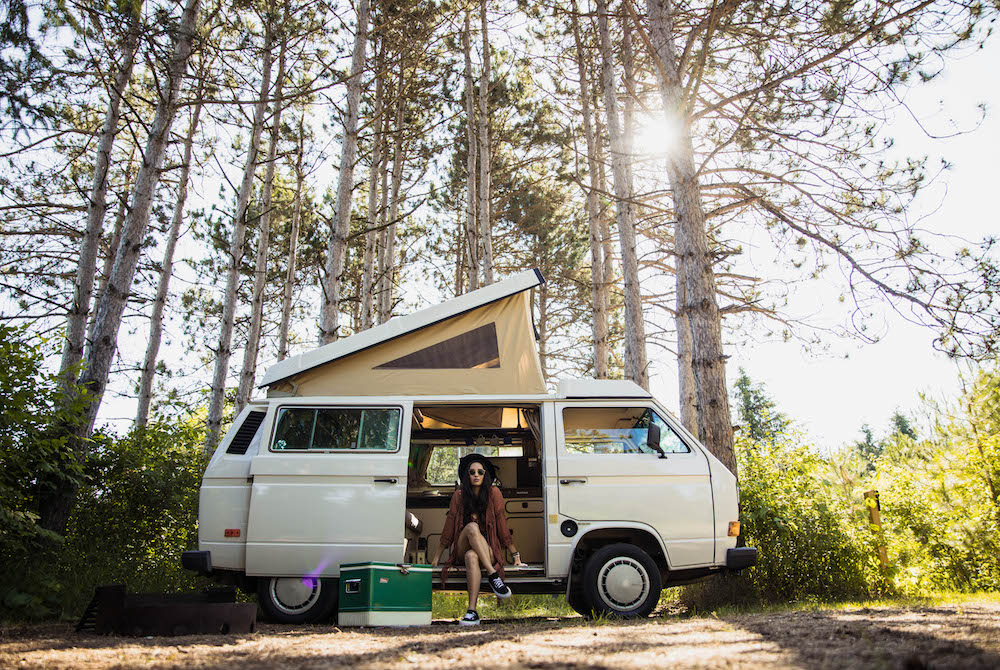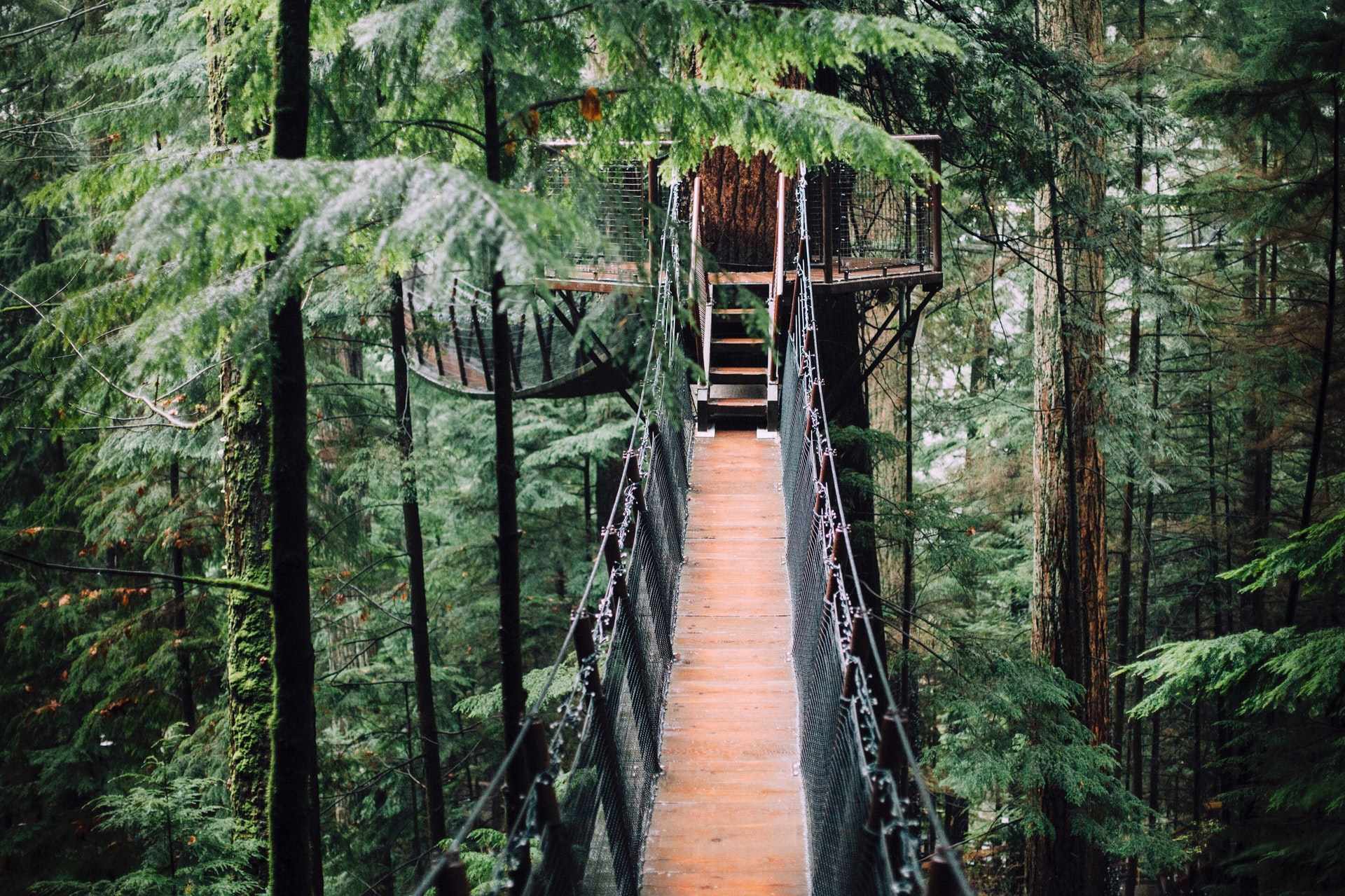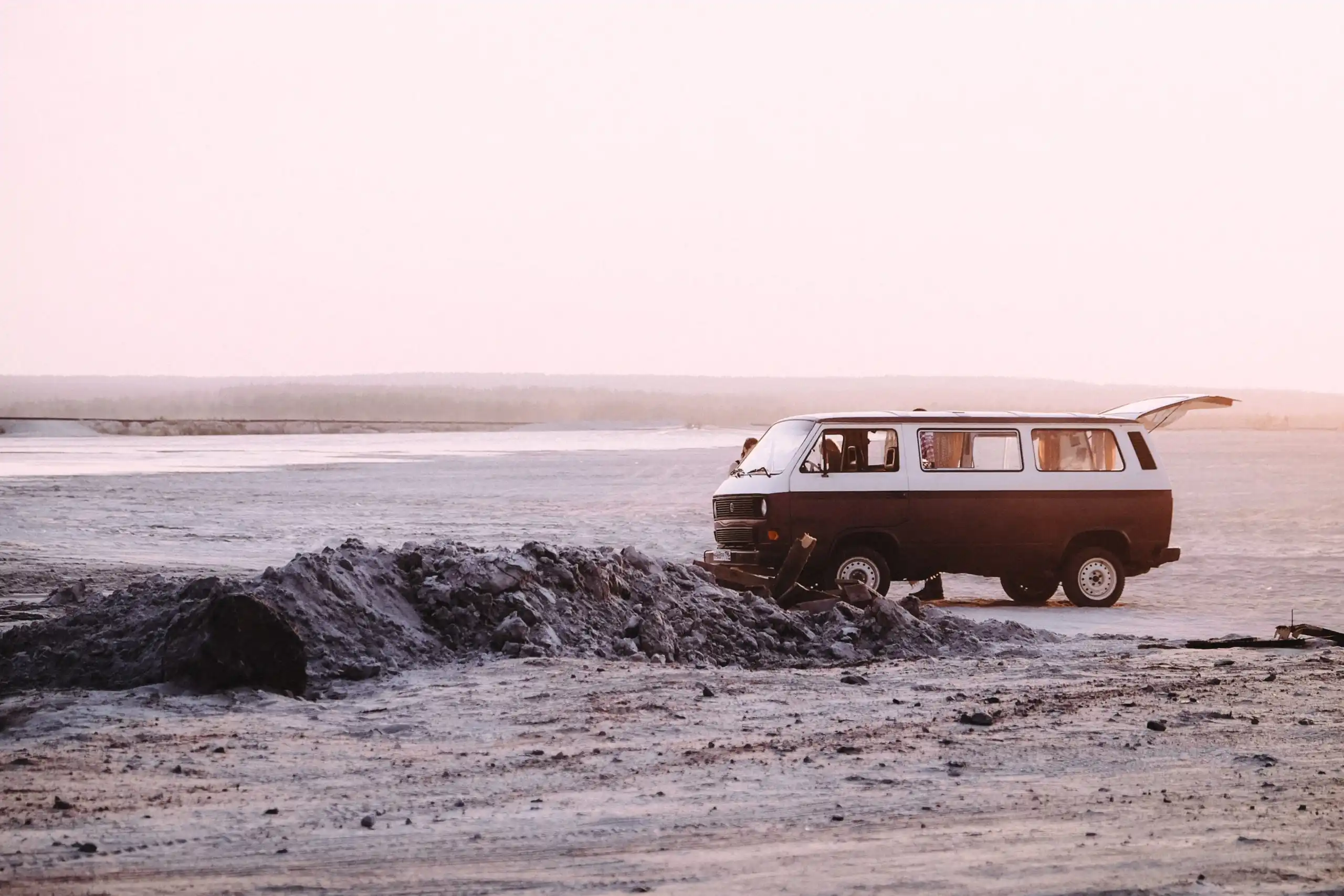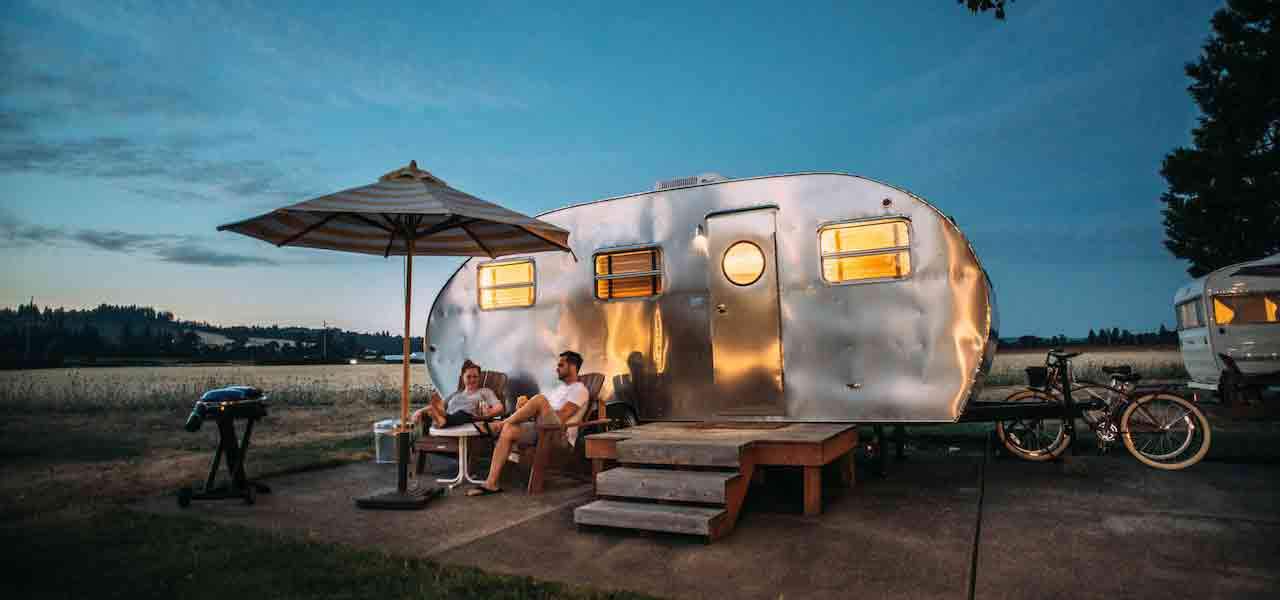As winter approaches, most RVs are either migrating south in search of warmer temperatures or preparing to hibernate until spring. But there are others that will do neither of these. Equipped for freezing temperatures, these vehicles are ready to take courageous campers on unique winter adventures.
Winter camping comes with some obvious challenges. Those willing to overcome these challenges may be surprised by how much they enjoy the experience. Whether pursuing a good environment for winter sports or simply seeking the peaceful solitude of a snowy landscape, winter campers looking for the right RV might wonder where to start.
Which type of camping companion is best suited for your winter adventures? Let’s count(down) the ways.
Winter RV Countdown
 No. 7 The Tent
No. 7 The Tent
While a good four-season tent will protect you adequately from the elements, it doesn’t offer much more than that.
Pros: It’s light and easy to take with you on an overnight snowshoe adventure or snowmobile tour.
Cons: Using the bathroom outside in sub-freezing temperatures isn’t anyone’s idea of a good time.
 No. 6 The Pop-up
No. 6 The Pop-up
Getting up off the ground will help you stay a lot warmer, and you can most likely take care of your basic needs without going outside.
Pros: While it won’t slip into your backpack, it is light, easily towed, and fits in small campsites.
Cons: Those canvas walls don’t provide a whole lot of insulation when those winter winds blow. Keep your long underwear on!
 No. 5 The Travel Trailer
No. 5 The Travel Trailer
While a travel trailer is a significant upgrade from a pop-up, most are not designed to be in winter temperatures for very long.
Pros: You’ll be well-protected from the elements and comfortable. A travel trailer is generally a budget-friendly option.
Cons: Towing a travel trailer safely on winter roads can be a challenge. They are also less likely to have added features that are helpful in cold weather.
 No. 4: The Class C
No. 4: The Class C
The Class C offers similar features to the travel trailer, with the added bonus of accessing your living space from the cab without going outside.
Pros: Traveling with only one vehicle in the winter is very convenient.
Cons: Class Cs usually don’t have a “basement” space underneath, which can add a lot of insulation to the living area. Like travel trailers, they are also less likely to be equipped with extra cold-weather features.
 No. 3: The Fifth Wheel
No. 3: The Fifth Wheel
Enjoy the great outdoors by day, get cozy in front of the fireplace by night. Fifth wheels often offer enough luxury amenities that you can forget you’re camping.
Pros: Many fifth wheels are in a price class that makes them more likely to include higher quality winter features. The basement space in the front offers additional insulation in the living space above it. The fifth wheel hitch style gives maneuverability and increased safety on winter roads.
Cons: The high ceilings on fifth wheels mean a lot of space that needs to be heated. Since campground availability is reduced in the winter, finding 50 amp hook-ups and big-rig friendly sites can be even more challenging.
 No. 2: The Class A
No. 2: The Class A
The luxury features usually included on Class A RVs are even nicer to have in winter weather! Combine most of the best features of other types of RVs without significant disadvantages.
Pros: Basement space under most of the RV adds a layer of insulation for most of the living space, while keeping the one-vehicle convenience mentioned for the Class C. The weight of the vehicle can be an advantage when driving on winter roads.
Cons: Similar to a fifth wheel, class As tend to also have high ceilings and big spaces to heat. They are also more likely to be diesel vehicles, and diesel fuel can freeze if not properly treated.
 No. 1: The Class B Campervan
No. 1: The Class B Campervan
Awarded this honor for combining one-vehicle convenience, ease of driving and parking, and likelihood of good insulation with a small, cozy space that is much easier to heat. A campervan is an excellent choice for a winter excursion.
Pros: Everything listed above!
Cons: With shorter daylight hours and the increased chance of bad weather, many winter campers find themselves spending more time inside than they might in other seasons. While many people find it cozy, the smaller space of a campervan may not be ideal for everyone.
Keep in mind
Keep in mind that there is tremendous variety within each of these categories. Some travel trailers are excellent in winter conditions, and some campervans are best suited for warmer climates. It’s important to investigate the specific rig you’re considering before hitting the road.
 What to look for when renting
What to look for when renting
Across models, there are certain features that will make or break your winter camping trip. Many manufacturers offer an “arctic package” but not all of these packages are created equal. Checking these specific details with the vehicle owner can save you from unpleasant surprises.
- Enclosed, heated underbelly. If water lines are exposed to freezing temperatures with no protection, they will freeze. Covering the underbelly also protects the lines and tanks from exposure to salt and other corrosive road chemicals during winter driving.
- Plumbing. Aside from the underbelly, is there a heated city water line or will you be using the fresh water tank? Are the tanks heated and safe from freezing? Are the grey and black water tanks treated to avoid freezing?
- Insulation. Are the walls well insulated? Is there extra insulation in storage hatches or doors and windows? Every little bit helps to keep the heat in and the cold out.
- Dual pane windows. Dual pane windows not only help insulate the window, they also help manage moisture and condensation, which are especially problematic when using propane heat.
- Tires. Be sure the tires are not too old and that the tread is still deep enough to be safe. Check if they are four-season tires. For some conditions, studded winter tires might be necessary. Having chains available is a good idea, and in some areas, is required by law.
- Engine needs (motorhomes). Find out the temperature rating of the antifreeze, and if the diesel fuel has been treated to avoid freezing.
- Delivery options. If you are not confident in your ability to drive an RV safely in winter conditions, talk with the owner about their delivery and set up options.
Winter camping can be a lot of fun and offers plenty of opportunities for adventure without the hassle of having to spray on mosquito repellant. With a little bit of preparation, you’ll be ready to hit the road and explore the winter wonderland outside—without having to leave the comfort of home.
(P.S.) Don’t forget the hot cocoa!








